Are you passionate about social justice and ready to make your voice heard? Writing an advocacy letter is a powerful way to express your thoughts and push for change in your community. Whether you're addressing local leaders or engaging in broader discussions, crafting a compelling message can inspire action. Join us as we explore effective letter templates and tips to amplify your advocacy effortsâread on for more!
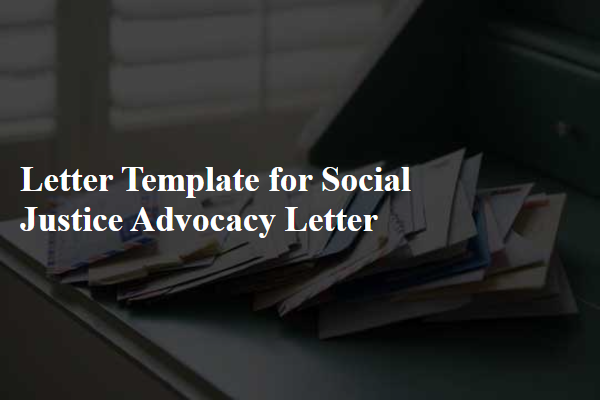
Clear and Focused Subject Line
Social justice advocacy letters aim to bring attention to critical societal issues. Effective advocacy involves clearly defining objectives, utilizing statistics to support claims, and referencing relevant movements or organizations. For instance, addressing police brutality and its impact on marginalized communities requires mentioning specific incidents (such as the George Floyd case in Minneapolis, 2020) and relating them to broader systemic injustices. Utilizing social justice frameworks, such as Critical Race Theory, can provide a theoretical basis for arguments. Citing reputable organizations like the American Civil Liberties Union (ACLU) or the NAACP can enhance credibility. Moreover, incorporating local statistics, like crime rates or socioeconomic data from specific neighborhoods, can personalize the appeal and foster stronger community engagement. Ultimately, a well-crafted advocacy letter connects individual experiences to larger societal narratives, compelling readers to take action.
Specific Call to Action
Social justice advocacy promotes equality and fairness for marginalized communities, emphasizing the importance of systemic change. Organizations such as the American Civil Liberties Union (ACLU), founded in 1920, work tirelessly to defend individual rights across the United States. Recent events, such as the nationwide protests in 2020 sparked by incidents of police brutality, underscore the urgent need for reforms in law enforcement practices. Activists are calling for the implementation of policies like community policing and the allocation of resources to mental health services to reduce police encounters. Engaging local representatives through petitions, phone calls, or attending town hall meetings can accelerate these critical changes, fostering a more just society.
Personal Stories or Testimonials
Social justice advocacy emphasizes the importance of personal narratives and testimonials to illustrate the lived experiences of individuals affected by systemic issues. These narratives can highlight struggles, such as discrimination or inequality, faced in various settings like workplaces, educational institutions, or healthcare systems. For instance, a testimonial from a person living in a marginalized community may shed light on obstacles accessing quality education, potentially revealing statistics like a 30% lower graduation rate compared to affluent neighborhoods. Sharing these powerful stories at advocacy events, such as rallies or community forums, fosters empathy and motivates action towards policy changes aimed at creating equitable opportunities for all. Engaging with personal testimonials cultivates a deeper understanding of the impact of social justice issues, inspiring communities and legislators to enact meaningful reforms.
Relevant Statistics and Data
Statistics illustrate significant disparities in social justice, with racial minorities comprising 35% of the U.S. population yet representing 67% of the incarcerated population. According to reports from the Bureau of Justice Statistics, Black individuals are six times more likely to be imprisoned than their white counterparts, revealing systemic inequality. The Economic Policy Institute states that the racial wage gap remains substantial, with Black workers earning approximately 75% of what white workers earn in similar roles, highlighting economic inequities. Furthermore, educational attainment disparities exist, where only 72% of Black students graduated high school in 2021 compared to 89% of white students according to the National Center for Education Statistics. These figures indicate a pressing need for reform to address inequalities and promote equity across society.
Contact Information and Resources
Advocacy for social justice often involves mobilizing community resources and establishing effective communication channels. Organizations like the American Civil Liberties Union (ACLU), established in 1920, provide vital legal support for civil rights issues. The NAACP (National Association for the Advancement of Colored People), founded in 1909, offers resources for fighting racial discrimination. Local resources, such as community centers or partnerships with universities, serve as hubs for educational workshops and outreach programs. Effective contact information, including phone numbers, social media handles, and email addresses, ensures quick communication for community engagement and solidarity. Events like rallies, town hall meetings, or webinars facilitate discourse among advocates and community members, fostering a united front in the movement towards equity and justice.

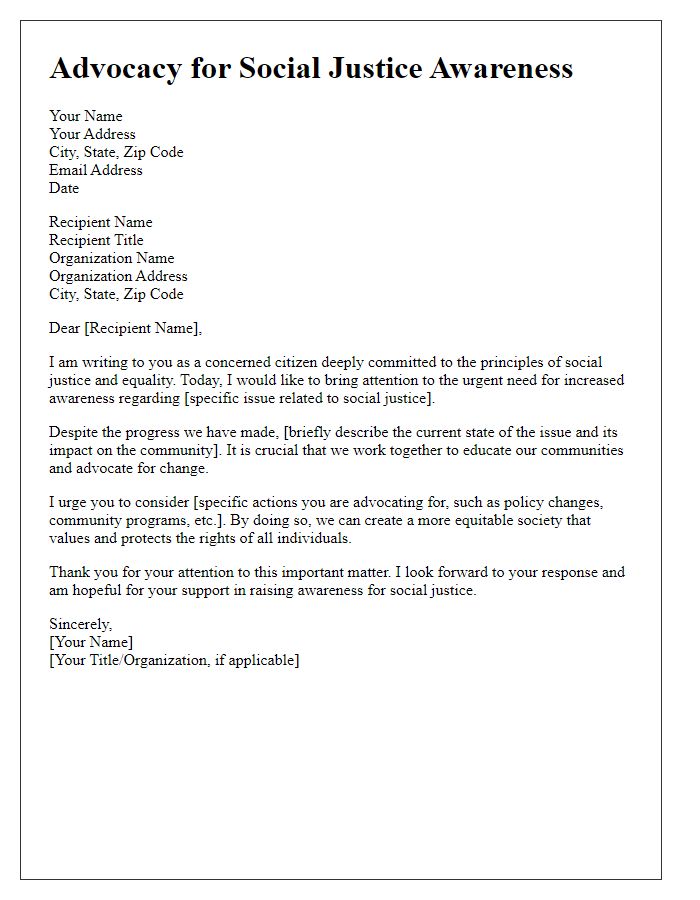
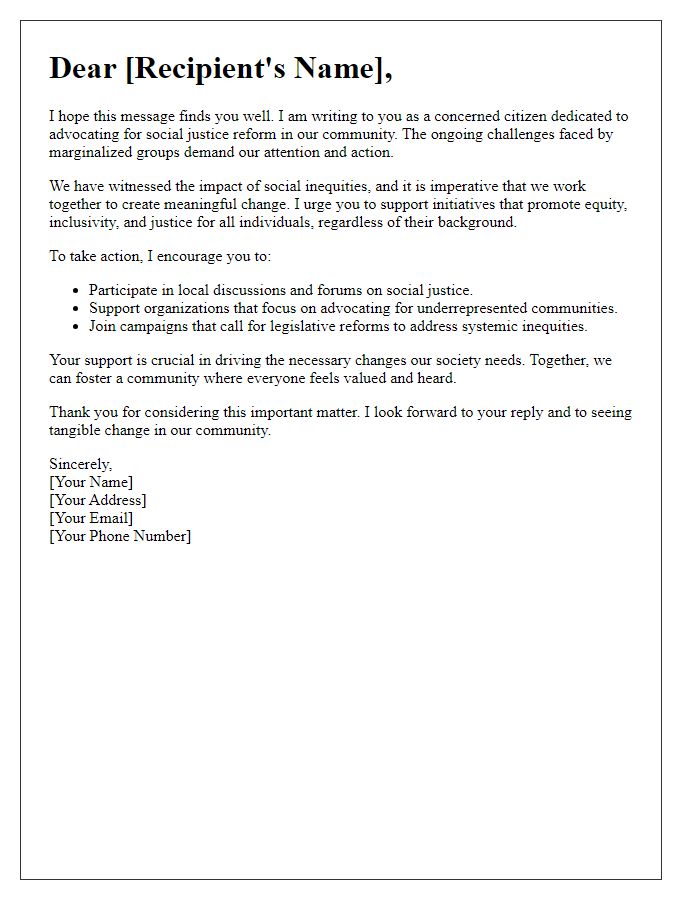
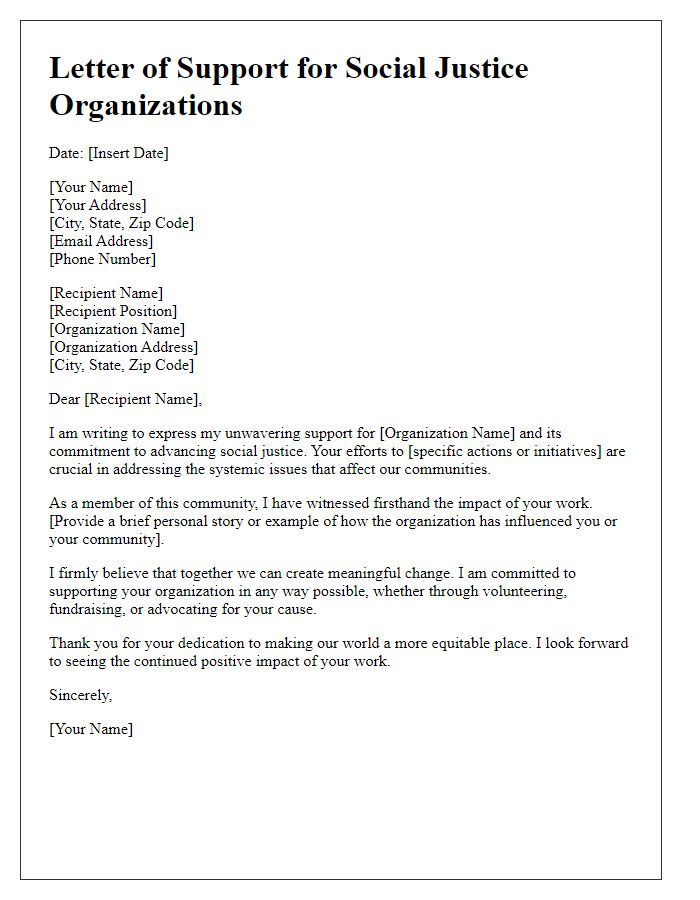
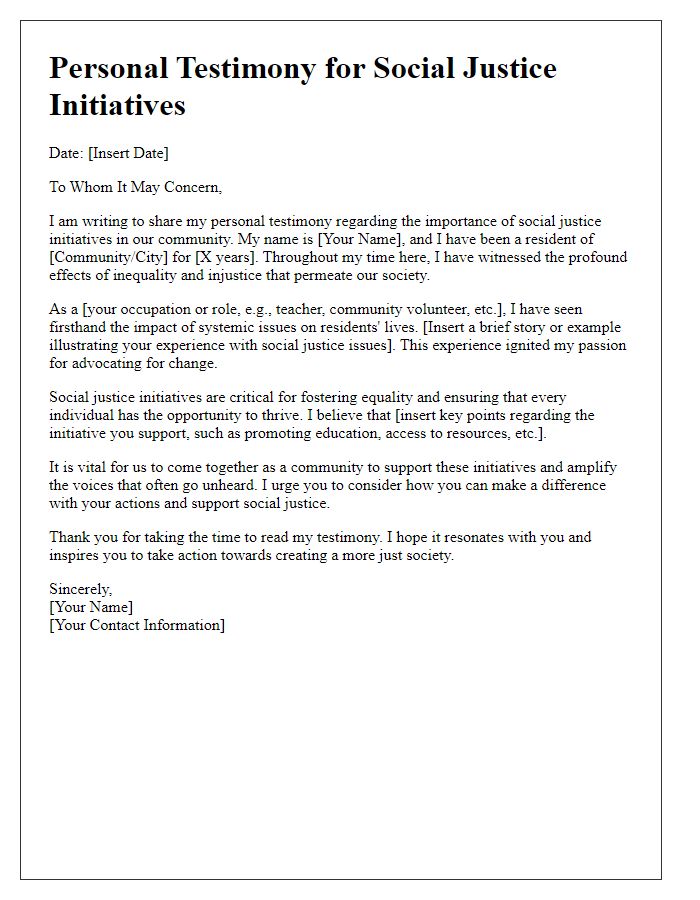
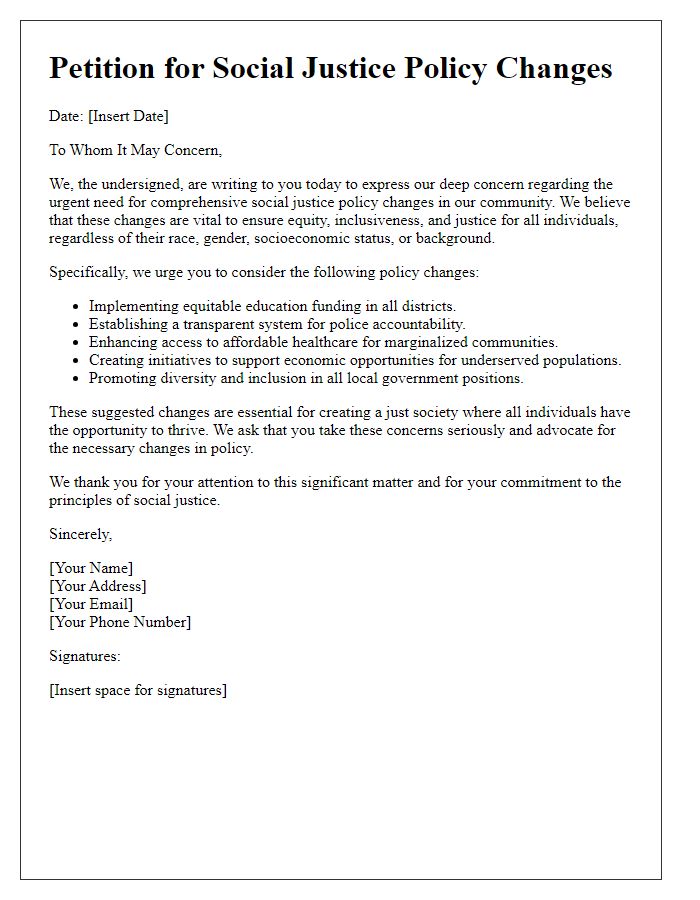
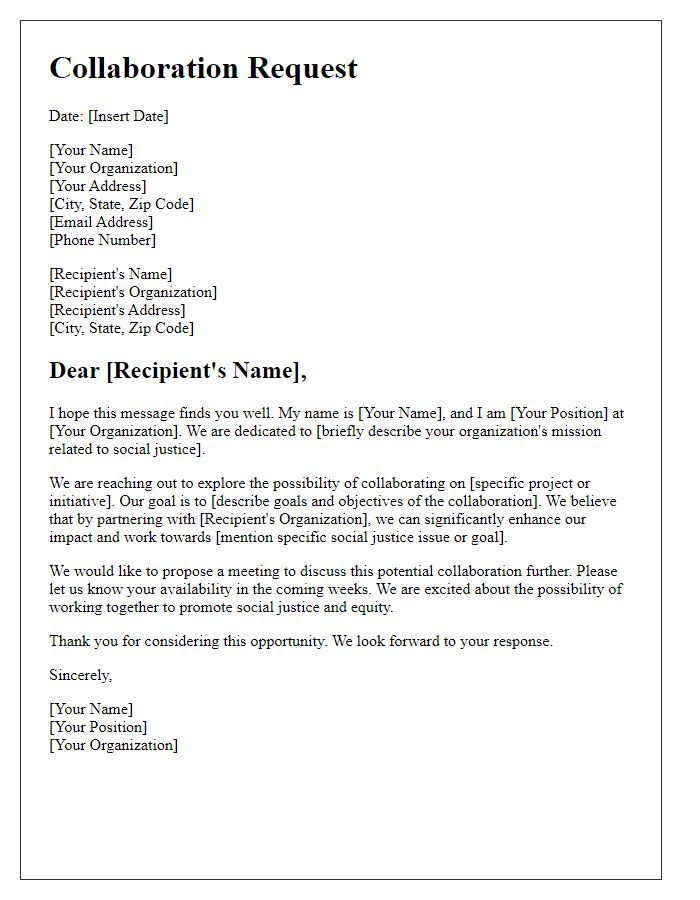
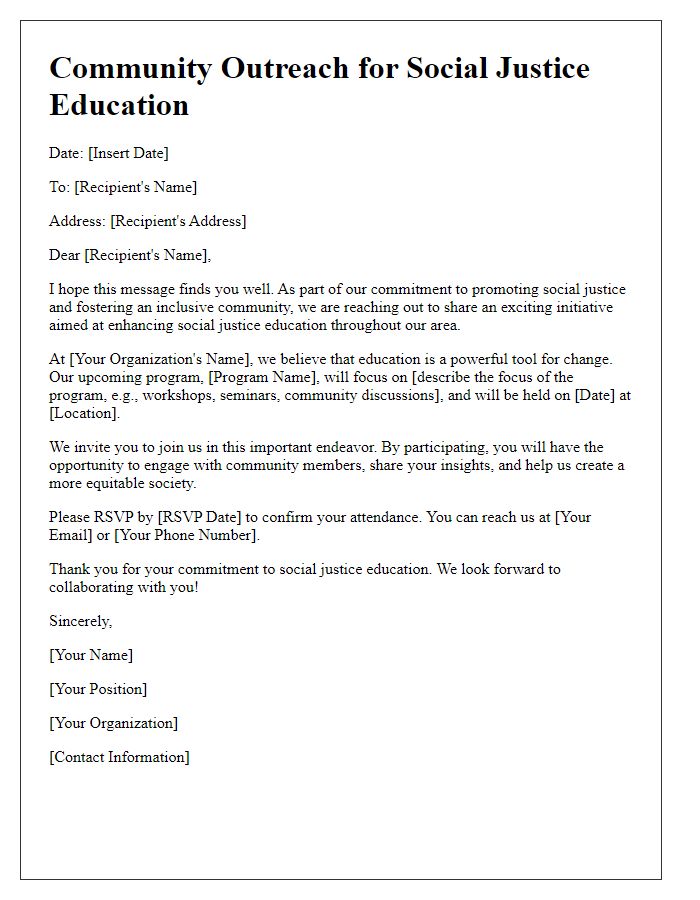
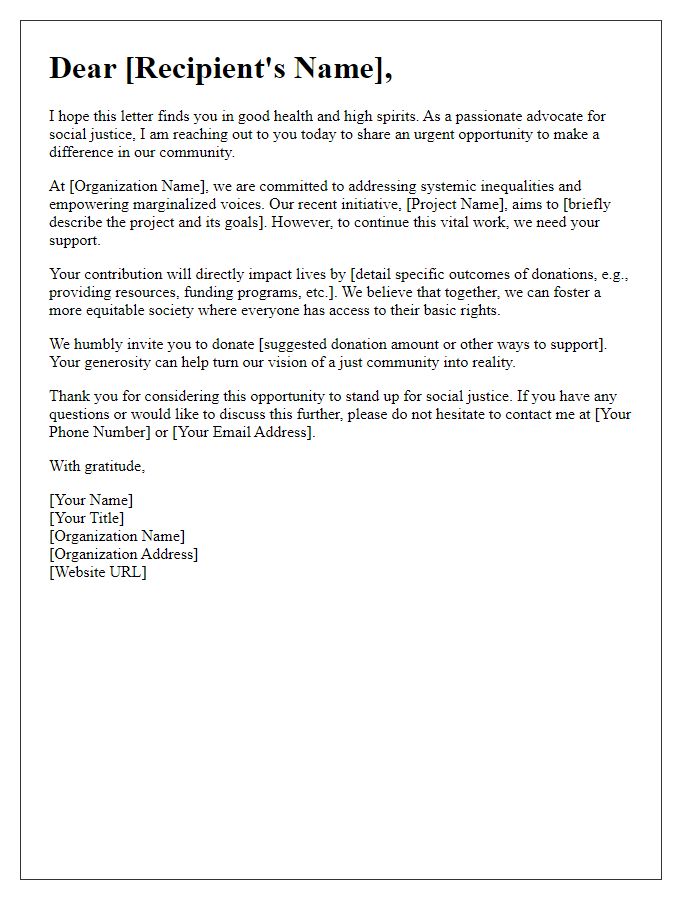
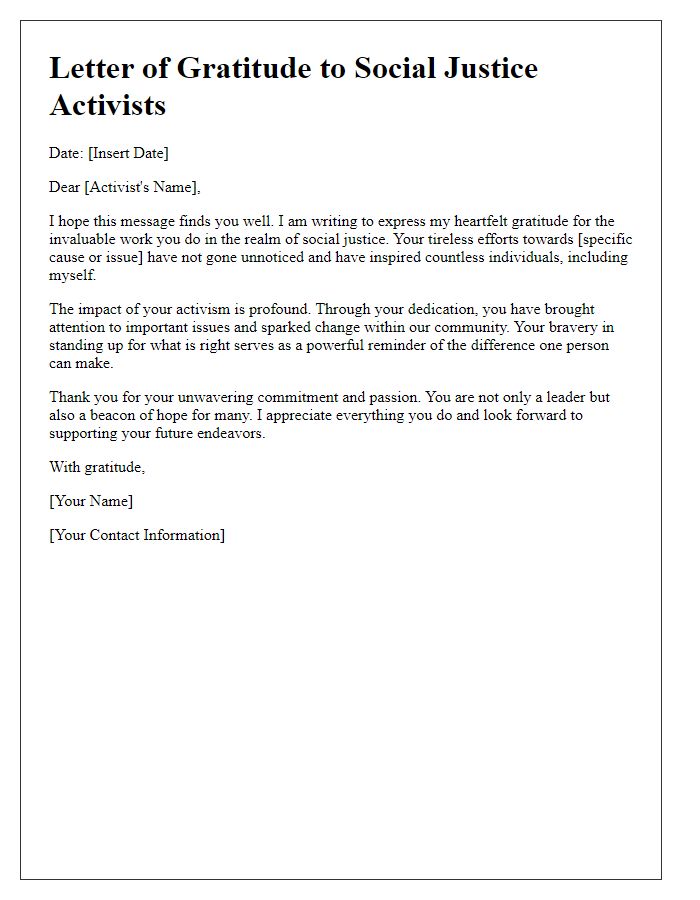
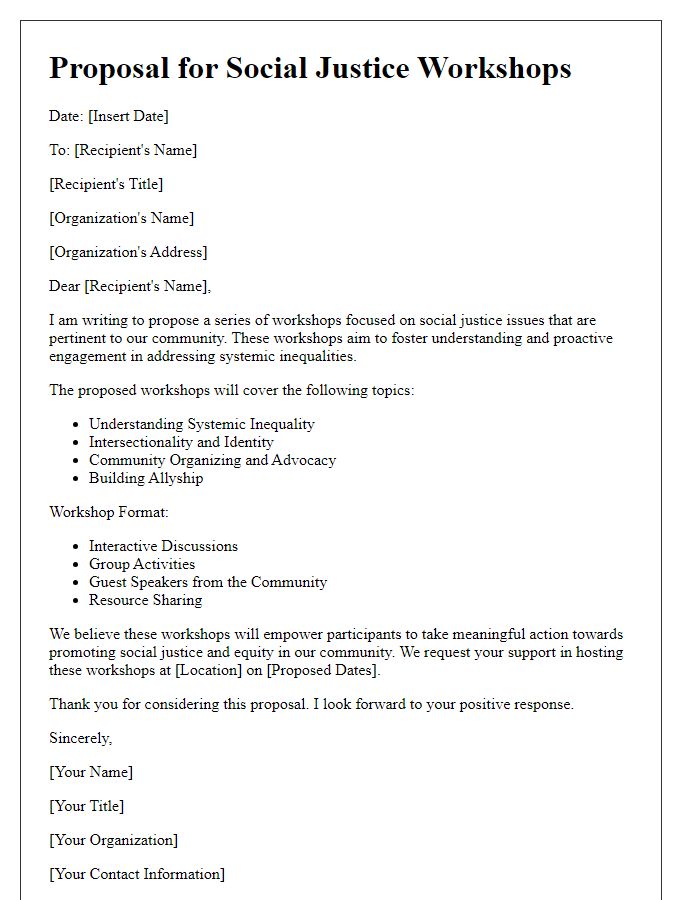


Comments